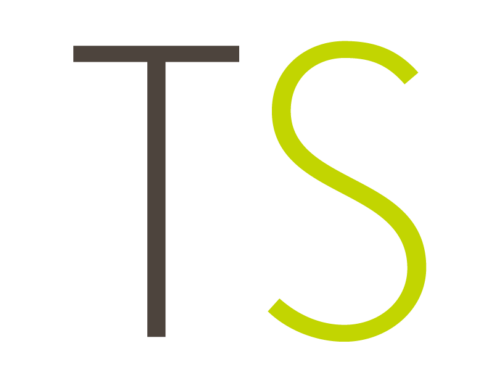What does a ‘good arguable case’ mean in the context of a freezing injunction? In the recent case of dos Santos -v- Unitel SA, [1] the Court of Appeal clarified this key threshold test for obtaining a freezing injunction.
What are freezing injunctions?
A freezing injunction[2] is a discretionary remedy which prevents the respondent from disposing of or dealing with their assets, the purpose of which is to preserve assets which are at risk of being dissipated by the respondent with the aim of frustrating a future judgment.
What are the requirements?
In order to persuade a court to exercise its discretion to grant a freezing injunction, the applicant must establish the following elements:
- The applicant has a ‘good arguable case’.
- The courts of England and Wales have jurisdiction.
- The respondent owns assets within the jurisdiction.
- There is a real risk of dissipation of those assets.
- It is just and convenient to grant the injunction.
What is a cross-undertaking in damages?
In making the application for a freezing order, the applicant must undertake to the court to pay any damages that the court considers the applicant should pay if it later transpires that the injunction was wrongly granted.[3]
What is a ‘good arguable case’?
The phrase ‘good arguable case’ has been used in the context of both freezing orders and jurisdiction. In applications for permission to serve proceedings overseas, the claimant must establish that it has a ‘good arguable case’ that the courts have jurisdiction. Over recent years, there has been a divergence of authority on what the phrase means, and uncertainty about which test applies to freezing orders. As explained by Mustill J in “The Niedersachsen”,[4] a ‘good arguable case’ in the context of freezing orders was one which is “more than barely capable of serious argument, but not necessarily one which the judge considers would have a better than 50 per cent chance of success”.
In Brownlie -v- Four Seasons Holdings Incorporated,[5] Lord Sumption commented upon the meaning of a ‘good arguable case’ in the context of the application of jurisdictional ‘gateways’ for service overseas. He noted that it had been held to mean that one party had “a much better argument on the material available”[6] and explained that this meant that, at the interlocutory stage of the proceedings, the court must take a view on the material available. If it might not be reliable do so then it would suffice that the applicant had a plausible (albeit contested) evidential basis for the application of a jurisdictional gateway.
However, in Lakatamia Shipping Co Ltd -v- Morimoto,[7] Haddon-Cave LJ’s judgment in the Court of Appeal appeared to equate the threshold for a freezing injunction with the higher threshold applicable to service out of the jurisdiction. Certain later decisions have, perhaps as a result, conflated the two tests.[8]
The question for the Court of Appeal in dos Santos, therefore, was: is the meaning of the ‘good arguable case’ threshold for a freezing injunction that which is set out in “The Niedersachsen” or the elevated test Morimoto?
The Decision
In dos Santos, an Angolan mobile telecoms company, Unitel SA (“Unitel”), brought proceedings seeking the repayment of loans made to a company controlled by one of its directors at the time, the Angolan billionaire Isabel dos Santos, said to be one of Africa’s wealthiest women and recently sanctioned by the UK government.[9] Unitel also applied successfully for a freezing order.[10]
In the first instance decision, Bright J rejected Ms dos Santos’ argument that the law had changed as a result of Haddon-Cave LJ’s decision in Morimoto, such that the correct test was now whether the applicant had the ‘better of the argument’. The judge instead preferred Unitel’s submission that “The Niedersachsen” remained good law, relying upon the decision of the Court of Appeal in Kazakhstan Kagazy plc & Ors -v- Arip.[11]
In granting permission to appeal to Ms dos Santos, Arnold J commented that “the law is in a confused state, which cries out for a definitive answer from the Court of Appeal”.
Following a two-day hearing, the Court of Appeal upheld the first instance decision, finding that:
- The correct test for a ‘good arguable case’ is that which is set out in The Niedersachsen.[12]
- Although the term ‘good arguable case’ is used in both tests concerning service out and freezing injunctions, there is no reason why it should have the same meaning in both.[13]
- It would be “invidious for the Court… to have to determine which party has “the better of the argument”[14] at the interlocutory stage as there will be a trial to determine those arguments.
- The ‘good arguable case’ standard should be equated to the (previously understood to be lower) ‘serious issue to be tried’ threshold,[15] which is the test for ‘regular’ interim injunctions.
Conclusion
As was very much needed, clarification has been provided by the Court of Appeal to litigants and practitioners alike on the actual meaning of a ‘good arguable case’ in the context of a freezing injunction. Indeed, noting Popplewell LJ’s obiter dicta comments, the Court of Appeal has provided an even more extensive view on the thresholds required for interim injunctions in general (and not just freezing injunctions).
The judgment also clarifies that the costs of a contested application for a freezing injunction should normally be payable by the unsuccessful respondent, distinguishing the position from interim injunctions made on the balance of convenience.[16]
[2] Also known as a “Mareva injunction” due to its inception in Mareva Compania Naviera SA -v- International Bulk Carriers SA [1980] 1 All ER 213.
[3] CPR PD 25A, paragraph 5.1(1).
[4] Ninemia Maritime Corporation -v- Trave Schiffahrtsgellschaft MbH [1984] 1 All ER 398.
[6] Ibid, Lord Sumption at [7].
[8] Harrington & Charles Trading Company Ltd & Ors v Mehta & Ors [2022] EWHC 2960; Chowgule & Company Private Ltd & Anor v Shirke & Ors [2023] EWHC 2815.
[9] UK Government list of designated persons.
[12] Flaux C at [90].
[13] Flaux C at [97].
[14] Flaux C at [100].
[15] Popplewell LJ at [122].
[16] Flaux C at [116]-[120].

Luke Hackett
Associate






